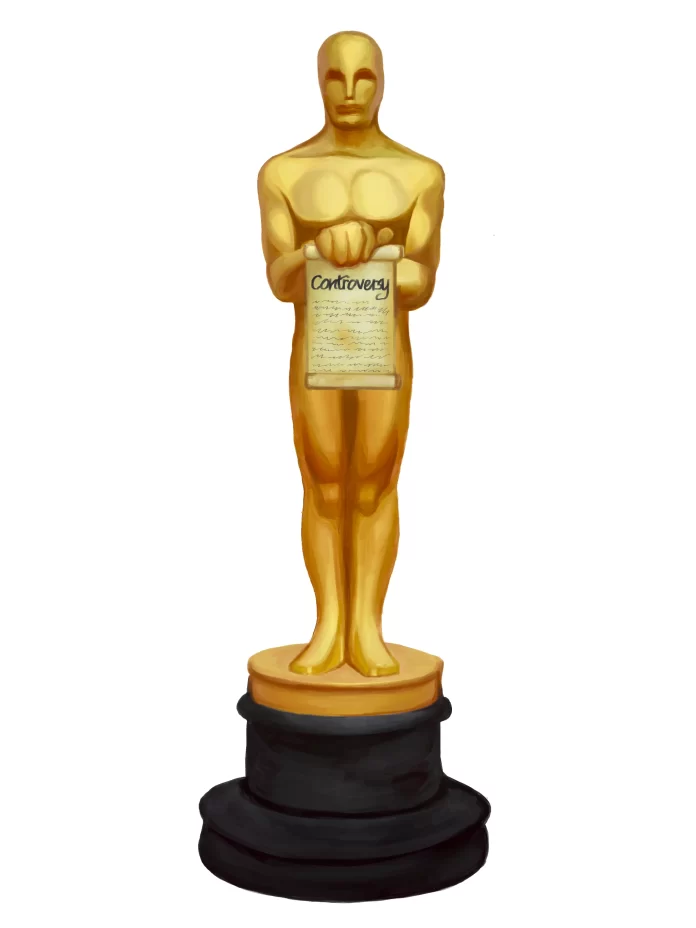Every year the most prestigious award show in Hollywood becomes the thing to talk about. I usually end up watching one or two of the nominees and tune into the Oscars for the fashion then stay for flowery acceptance speeches. This year I managed to catch six out of the 10 nominees for Best Picture. So when I sat down for the 97th annual Oscar Academy Awards show, I had my favourites and sneaking suspicions. Some proved right, some proved wrong, but either way this was an Oscars for the history books.
The show opened with a bang, with Arianna Grande and Cynthia Erivo belting out excerpts from the biggest musical of the year, Wicked (2024). Erivo left the audience speechless with her final riff of “Defying Gravity” as Grande looked on with admiration in a way that will be memed for years to come.
Conan O’Brien hosted the show for the first time. The long time late night show host gave a subpar opening monologue that highlighted just how young Timothée Chalamet is, jokingly compared AI to child labour, and ended with a song about not wasting the audiences’ time while being a complete waste of time. One brilliant joke O’Brien made was about Karla Sofia Gascón’s publicist using more f-bombs than Anora (2024).
The first award of the night went to Kieran Culkin for Best Actor in a Supporting Role. I was hoping for a more awkwardly hilarious acceptance speech from Culkin, like the ones we’ve seen in the past, but instead he gave us a joke about having more kids with his wife and called it a night.
There were some historic winners this year. Flow (2024) won Best Animated Feature Film and is the first Latvian film to win an Oscar, and Paul Tazewell was the first Black man to win Best Costume Design for his fabulous work on Wicked. Whether or not the public thinks it was deserved, Zoe Saldaña became the first American of Dominican descent to win an Oscar for her supporting role in Emilia Pérez (2024).
Speaking of the controversial film; neither of the acceptance speeches for the two Oscars Emilia Pérez won addressed trans people or the community, even though it’s a key part of the movie. While Saldaña is now under fire for the lack of apology she gave to a reporter post-acceptance speech regarding how Latin American and Mexican viewers took the film, it was Camille and Clément Ducol trying to start a sing-along during their speech for Best Original Song that had me cringing. The pair’s attempt did save us from having to hear director Jacques Audiard speak, so perhaps there’s a silver lining.
Adrien Brody’s acceptance speech for Best Actor in a Leading Role was the worst of the night. It became a five minute rant about how he was the underdog while still somehow maintaining an air of entitlement. Brody called off the music and stated multiple times that he would be “brief” as he continued to speak and the way he threw his gum at his girlfriend at the start was anything but classy. Brody’s win sets a new precedent when it comes to AI aiding an actor — although it is isolated to bolstering Brody’s Hungarian accent when his character spoke the language, it speaks volumes about what the Academy is willing to disregard when talking about excellence.
The best speech of the night came from No Other Land (2024) filmmakers accepting the award for Best Documentary Feature Film. The film is made by a Palestinian-Israeli collective about the devastating effects the war between the two nations has. Yuval Abraham spoke on the importance of this film and called for a ceasefire.
“We made this film, Palestinians and Israelis, because together our voices are stronger. We see each other — the atrocious destruction of Gaza and its people which must end.”
Finally, the sweep of the night — Anora — won five out of the six awards it was nominated for: Best Director, Best Original Screenplay, and Best Film Editing won by the film’s director Sean Baker. Mikey Madison got Best Actress in a Leading Role over Demi Moore — which has caused a lot of discourse online of how it proves the point that The Substance (2024) is making.
To my surprise, Anora won Best Picture. When I first reviewed the film I didn’t think it would be a major contender for the Oscars — I didn’t think it was prestigious enough for Hollywood’s elite, especially as an indie film, but I guess the Academy decided to prove me wrong. Is this a new shift for the Oscars? To quote Anora producer and fellow Canadian, Samantha Quan:
“Tell the stories you want to tell.”
And maybe you’ll also accept an Oscar for Best Picture somewhere in the future.


